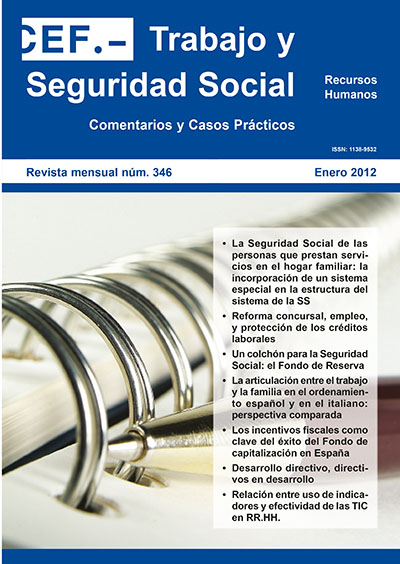The work-family balance in Spanish and Italian legislation: a comparative approach
DOI:
https://doi.org/10.51302/rtss.2012.3283Keywords:
conciliation, women, labour, Italy, SpainAbstract
Debate over how to attain a work-family balance, achieve equality between men and women, and eliminate gender-based discrimination is still an outstanding issue on the agendas of many States. Workers with certain family responsibilities (largely and particularly women) encounter many difficulties both in accessing the labour market (a market which demands productivity and a commitment of time) and in maintaining jobs held. Yet, at the same time, during periods of crisis such as the present, all available assets must be mobilised in order to increase the productivity and competitiveness of the business fabric and thus reduce the high levels of unemployment. It is therefore fundamental for both social agents and politicians –and, indeed, business– to strive to adopt models of management which ensure that women in particular and workers with family responsibilities in general participate in the world of work and remain there under optimal conditions. This study seeks to analyse the legal framework which exists regarding this matter in two countries of somewhat similar traditions –Spain and Italy– paying particular attention to the strengths and weaknesses of certain recently approved legislative measures.



















